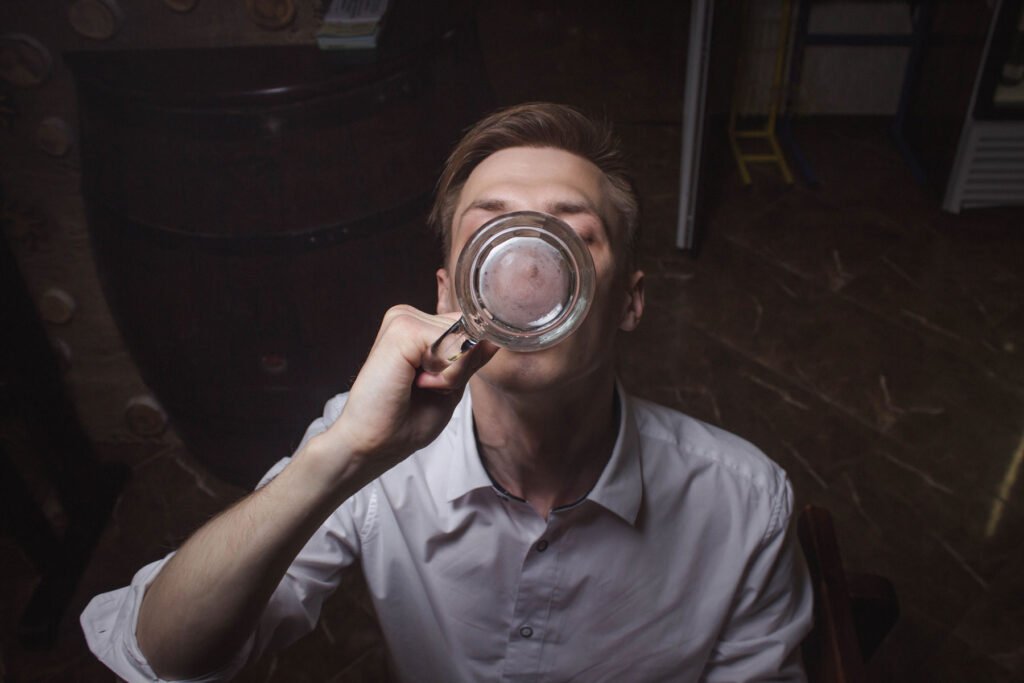Many people turn to alcohol to relieve anxiety during stressful times, which can include social situations. While alcohol temporarily relieves anxiety symptoms, its effects are more harmful than good in the long run. What begins as a temporary coping mechanism can disrupt brain chemistry, worsen anxiety symptoms, and lead to the development of alcohol use disorder (AUD).
A co-occurring disorder refers to an individual with a mental health condition, like anxiety, and a substance use disorder, like AUD, simultaneously. Co-occurring disorders make treatment more complex as conditions overlap. This is why professional support is necessary. As a leader in the addiction and mental health space, The Right Step Hill Country can help. We specialize in dual diagnosis treatment and offer the support you or a loved one need for the best possible recovery outcomes.
Understanding the impacts of alcohol and anxiety
Alcohol and anxiety have a complex and bidirectional relationship. Many people with anxiety disorders rely on alcohol to cope. At the same time, prolonged or excessive alcohol abuse can contribute to the development or exacerbation of anxiety disorders.
Anxiety and alcohol both impact the central nervous system (CNS), in different ways.
Alcohol is a CNS depressant, resulting in:
- General slowing of brain activity
- Decreased inhibition
- Slowed breathing
- Temporary euphoria
- Relaxation
- Sedation
Alcohol slows down neurotransmitter activity, particularly gamma-aminobutyric acid (GABA). Heavy drinking causes cognitive and motor function impairments, memory loss, and blackouts.
Anxiety activates the CNS stress response, causing:
- Increased levels of cortisol and adrenaline
- Increased heart rate
- Heightened awareness
- Rapid breathing
- Muscle tension
Anxiety also impacts the balance of neurotransmitters, like serotonin and norepinephrine, which regulate mood and stress responses.
While alcohol can initially appear to ease anxiety symptoms, it ultimately exacerbates them. Because alcohol depresses the CNS, and anxiety stimulates it, the brain is thrown into chaos trying to regulate itself. Reliance on alcohol to manage anxiety can trap people in a cycle of drinking to alleviate anxiety and then experiencing anxiety about drinking.
The relationship between social drinking and anxiety
Social drinking and anxiety are a common combination and a double-edged sword. Grabbing a drink is a common way for people to socialize. Because alcohol lowers inhibitions, people with anxiety tend to rely on it to help themselves loosen up before or during social events. A couple of drinks can quiet the fears of “what are people thinking about me?” or “everyone is judging me” and promote a sense of confidence.
The catch is that the effects of “liquid courage” are temporary and not real, and most often lead to the rebound effect, which includes:
- Overthinking everything that happened at an event
- Waking up with racing thoughts or physical anxiety symptoms
- Irritability and restlessness
- Regret or embarrassment about what you said or did
The level of anxiety produced by the rebound effect can sometimes lead people to have another drink to calm down and quiet the anxiety, thus participating in a vicious cycle.
The benefits of dual diagnosis treatment for alcohol and anxiety
AUD and anxiety each present challenges that can cause severe difficulties in the lives of those impacted. When they co-occur, they create a cycle where the symptoms of one intensify those of the other.
Through evidence-based and holistic therapies, clients learn coping and life skills that they can apply beyond treatment. Other benefits include:
- Treating the root causes, not just the symptoms
- Breaking the cycle of self-medicating
- Replacing reliance on alcohol with healthy coping skills
- Increasing treatment outcomes for lasting recovery
- Reducing the risk of returning to use
At Hill Country, our integrated approach to dual diagnosis treatment provides insight into how your alcohol use and anxiety impact each other and your ability to function.
Reach out to Hill Country for dual diagnosis treatment today
Relying on alcohol to manage anxiety symptoms may seem like a good idea at first, but it will only lead to more significant problems down the road. The best way to address these combined issues is through dual diagnosis treatment. If you are ready to discover true healing, reach out to Hill Country to enroll in our dual diagnosis program. Connect with us using our online contact form or call 1.844.675.1628 to get started today.

